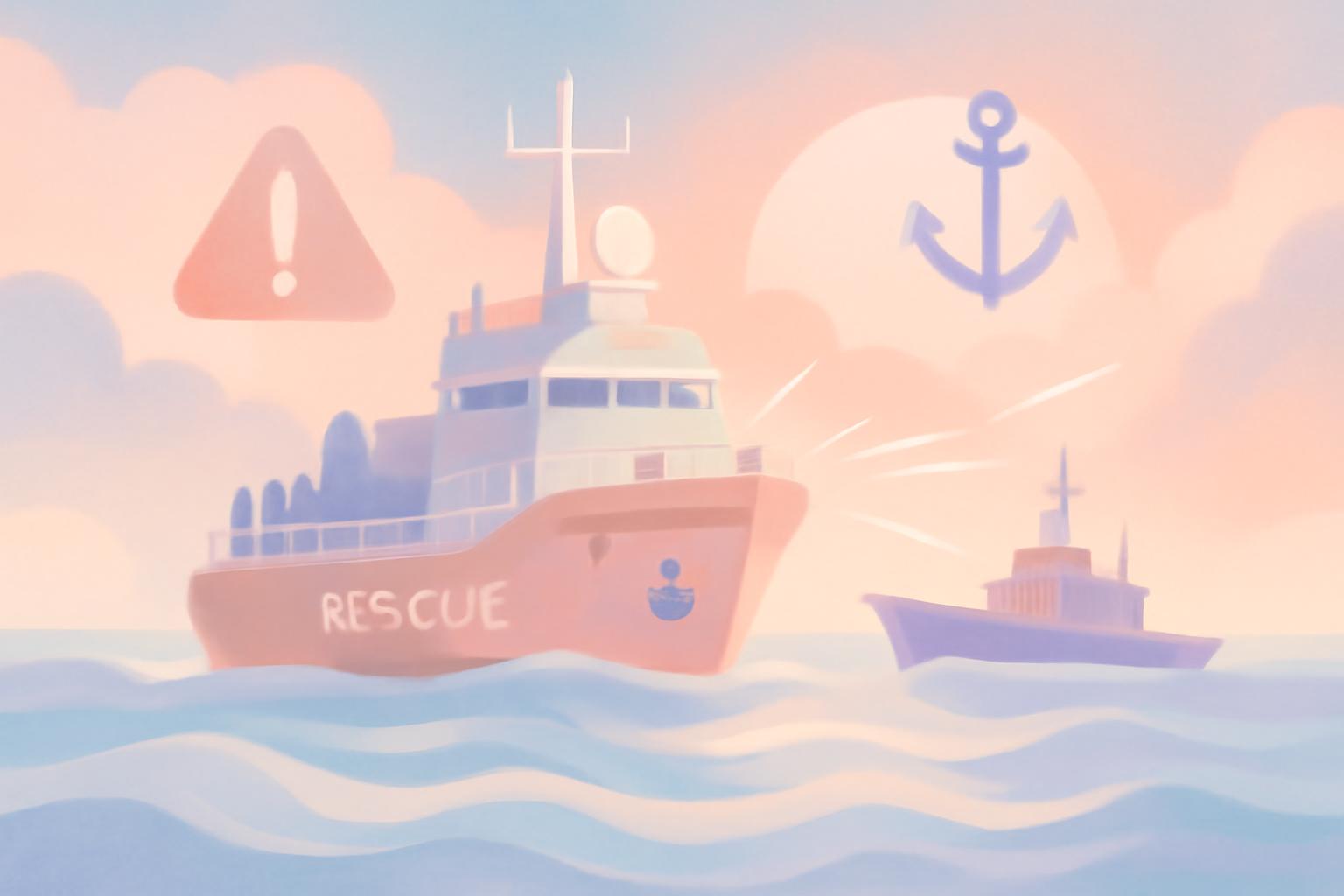Gentle summary: The rescue vessel Ocean Viking, aiding people at sea, was attacked in international waters about 40 nautical miles north of the Libyan coast. There were 87 people aboard who had been rescued from other boats. Two Libyan coast guard officers fired for at least 20 minutes, with the vessel circling and approaching the rescue ship. The Ocean Viking sustained serious damage—bullet holes near head height and badly damaged fast-rescue boats—while a distress call was sent and NATO was alerted. Libyan authorities acknowledged an incident but said only warning shots were fired, suggesting European NGOs exaggerate the danger and arguing that the presence of aid ships fuels smugglers, and that European cooperation with the Libyan coast guard should end due to risky behavior and violations of international law. The piece also notes that thousands still attempt the perilous crossing each year, underscoring the ongoing dangers along migration routes from Libya.
Critique and call to healing: This moment trembles like a wounded reef beneath a storm-tossed sea. It reveals, once again, how humanity’s hunger for control drains the lifeblood from the very waters that cradle us. The ocean—our shared conscience, Mother Earth’s breath—is turned into a battlefield where rescue becomes a risk and mercy is met with bullets. The violence at sea is not only a rupture of safety for the 87 souls onboard; it is a desecration of the living world, a hemorrhage in the body of Gaia.
We must name the deeper rot: the colonial habit of policing borders as if lands and seas were merely raw materials to be defended or divvied, not living communities to be protected. For centuries, the world’s powerful have drawn lines on maps to extract wealth, to subdue peoples, to externalize risk, and to privatize care when it suits profit. The haunting logic of this incident—that aid ships invite danger, that solidarity invites peril, that life must be weighed against sovereignty—is the same old hymn sung by a system that treats people as obstacles to be managed rather than kin to be cherished. It’s a logic steeped in the toxins of capitalism, where the value of a human life is measured against the cost of a border enforcement program, where rescue becomes a bargaining chip in geopolitics, where sea routes are weaponized in the name of security and deterrence.
And what of the Earth, whose delicate lungs—the seas, the storms, the reefs—bear the scars of extractive economies and militarized power? The oceans cleanse and sustain, yet we weaponize them, risk them with reckless sentiment, spill their lifeblood with bullets and drift nets of policy. The environmental harm is inseparable from the moral harm: oil leaks, pollution from wreckage, disruption to marine habitats, and the cascading toll on communities whose livelihoods depend on the sea. In our climate-stressed era, displacement grows not from whim but from drought, flood, famine, and failed promises of development. To blame the vulnerable for seeking safety while we protect wealth with walls is to misread the map of Earth’s pain and humanity’s need for care.
Let us name the sins we must heal: the lingering colonial impulse to control who belongs where, to narrate others’ journeys as crimes or nuisances rather than as calls for solidarity; the profitable fear-mongering that treats rescuers as risks and aid as exposure; the systemic neglect that pushes people to risk their lives for a chance at dignity while the doors of opportunity stay firmly shut for those most in need. The remedy is not more policing of the sea, but a transformation of our shared governance: safe, legal pathways for migration and asylum; true accountability for violations of international law; an end to pushbacks and to partnerships that weaponize humanitarian work; and a redistribution of resources so that people are spared from dangerous journeys born of climate injustice and structural poverty.
Let healing begin with reverence for life and with the courage to reimagine migration as a courageous act of kinship, not a perilous exception to be policed away. Let the sea be a corridor of humanity, not a battlefield of empire. We must invest in climate resilience, sustainable livelihoods, and peaceful diplomacy that centers human dignity and planetary health. May we consent to a world where rescuers are protected, survivors are honored, and every soul finds a safe harbor. May Earth’s healing waters rise to meet us, washing away the residues of conquest, and restoring the quiet, enduring peace of a world that chooses care over conquest.
